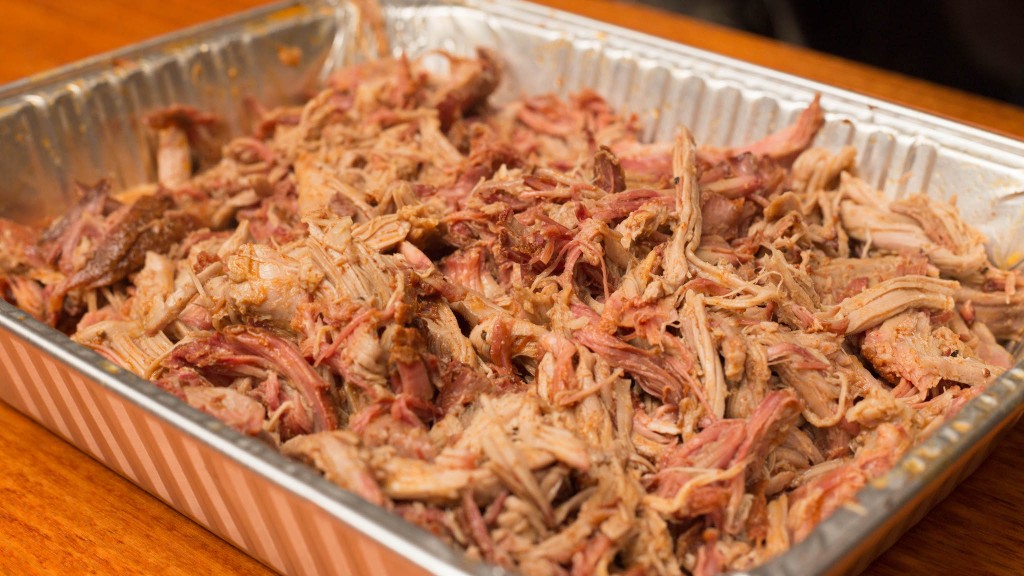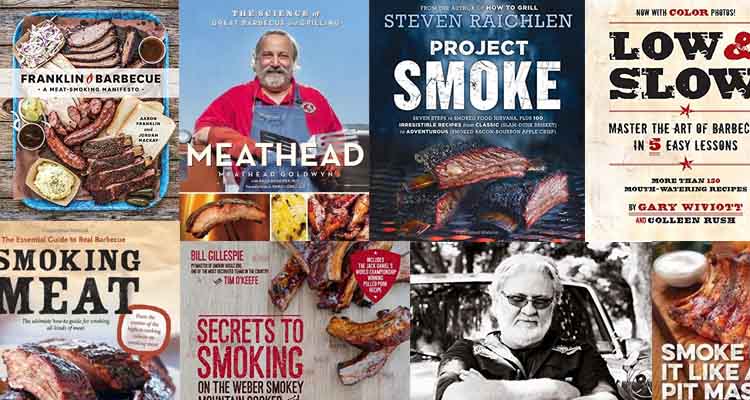Best Wine for BBQ: How to Pair Wine With Barbecue Meats and Sauces

When you think barbecue, you might think of whiskey or beer as the drink on the side – but did you know that wine can also pair fantastically with the robust flavors of smoked and grilled meat?
You don’t need to be a master sommelier to be able to pair wine with food. Today I want to share some tips for pairing wine with the robust flavors of barbecue, along with some of my favorite pairings for different meats and sauces.
Why pair wine with barbecue?
Food and wine pairings exist for the purpose of enhancing both the flavor of the food and the flavor of the wine. The ideal pairing should create a balance, so the food does not overpower the flavor of the wine and vice versa.
There are two types of wine pairings:
- Congruent Pairing – the wine will complement the flavor of the food.
- Complementary Pairing – the wine will enhance the flavor of the food.
When it comes to barbecue, you are generally working with food with a robust flavor profile. Heavy doses of salt, pepper, sugar and smoke leave you with a lot of flavors to work with. That is why I always like to look for congruent pairings when I’m pairing wine with barbecue.

Barbecue does not need to be enhanced because it is so full of flavor but pairing the right wine with the right dish can elevate the experience and complement the food nicely.
It’s also important to note that taste is very subjective. Different people have different palates and preferences when it comes to both food and wine. One person may love pairing a robust Cabernet Sauvignon with smoked brisket and another person may find it overbearing and opt for something lighter. It’s important to try multiple flavor combinations to find what your personal preference is.
Wine and smoked meat
Red wines pair wonderfully with barbecue because most barbecue meats have a high fat content. The fat in the meat is balanced by the tannin in red wine. But that’s not to say that white wines cannot pair equally well.
The old rule “white with white and red with red” is outdated.
There is no reason why you cannot pair a dry white with a cut of beef or a mellow red with a chicken dish – there is so much more complexity involved in wine flavor than just the color of the grape.
General guidelines for pairing wine with barbecue
One of the easiest ways to pair wine and barbecue is to think about fat content, and spice level. Many traditional barbecue meats are high in fat content like brisket and pulled pork.
- When you are working with meat that has a lot of fat, you want to balance out that fat content with wine that has a higher level of acidity. Generally speaking, white wines that are made from grapes that are still green are going to have the highest levels of acidity.
- If your barbecue style leans toward the spicier side, you should try to avoid super dry wines. The dry wine mixed with spice will enhance the spiciness of the food and leave you with an unpleasant burn in your palate. Look for a sweeter wine, like a Riesling or Pinot Noir that will compliment the spicy flavors.
My favorite wine pairings
1. Brisket

Smoked brisket is full of fat and usually seasoned heavily with a salt and pepper-based rub. This creates a delicious, savory bark around the outside of the meat. The goal here is to find a wine that compliments the fattiness, smokiness, and saltiness of smoked brisket.
- Red: Cabernet Sauvignon, Tempranillo, Syrah
- White: Chardonnay, Sauvignon Blanc, Champagne
2. Pulled pork

Smoked pork shoulder, often shredded into pulled pork, is both sweet and savory. Pork is a meat without a lot of inherent flavor so you will often find that pulled pork has been heavily seasoned with rubs containing brown sugar, salt, pepper, and a bit of spice like cayenne or red pepper flakes. The goal here is to find a wine that compliments the sweet flavors of the pork, but also the high fat content of the meat.
- Red: Pinot Noir, Merlot, Port
- White: Riesling, White Zinfandel, Rosé
3. Pork ribs

Pork ribs can be tricky because so many people season and sauce them differently, but the general rules that apply to pulled pork also apply to pork ribs – you want something that will compliment the traditionally sweet flavors of barbecued ribs.
- Red: Merlot, Old Vine Zinfandel, Pinot Noir
- White: Riesling, Champagne, Sauvignon Blanc
4. Smoked chicken

I tend to lean towards white wines and light-bodied reds when I’m pairing wine with chicken, but the smoky flavor that can be achieved through barbecue opens up a few more robust options because the smoke flavor in the chicken can hold its own.
- Red: Shiraz, Pinot Noir, Red Moscato
- White: Rosé, Sauvignon Blanc, Chardonnay
5. Burgers and steaks

Generally, when you are looking for a wine to pair with a steak, you automatically think of a robust red wine, but there are also white wines that are tough enough to hold their own against the meaty flavor of beef.
- Red: Cabernet Sauvignon, Sangiovese, Merlot
- White: Chardonnay, Sauvignon Blanc
It is all about the sauce
Another thing to keep in mind when you are pairing wine with barbecue is whether you plan to use barbecue sauce. There are many different varieties of barbecue sauce that change based on region and personal preference and the bold flavors of sauce can really change the flavor profile of the entire dining experience.

Below are some popular barbecue sauce options with unique wine pairings to go with them.
1. Texas-style barbecue sauce (smoky, spicy)
Texas barbecue is all about the meat and a traditional Texas-style barbecue sauce reflects that. The sauce is often used to baste meat instead of being served as a condiment. Generally made from the drippings of the meat and full of spices like chili powder, garlic, cumin, and pepper.
- Wine pairings: Syrah, Cabernet Sauvignon, Old Vine Zinfandel
2. Kansas City-style barbecue sauce (sweet, ketchup-based)
When you think of barbecue sauce, you probably think of a Kansas City-style sauce. It’s usually ketchup-based, sticky, and sweet. Often sweetened with syrup or molasses and served alongside barbecue as a condiment.
- Wine pairings: Pinot Noir, Cabernet Franc, Merlot
3. East Carolina-style vinegar sauce (tangy, vinegar-based)
Pork is king in East North Carolina, including the famous whole hog style of barbecue. The sauce that accompanies it is simple so that it does not overpower the flavor of the slow-smoked pork. It’s a watery sauce made from vinegar, salt, and a touch of pepper flakes for spice and is used as a mop sauce during the cooking process.
- Wine pairings: Riesling, Moscato, Rose
4. South Carolina-style mustard sauce (sweet, tangy, mustard-based)
Known as “Carolina Gold”, this sauce stands alone as the epitome of mustard-based sauces. It’s a simple mixture of apple cider vinegar and mustard with a touch of brown sugar and honey for sweetness. Many people add cayenne pepper for a bit of spice and this sauce is most famously served atop a juicy, pulled pork sandwich.
- Wine pairings: Chardonnay, Cabernet Sauvignon, Sauvignon Blanc
5. Memphis-style barbecue sauce (spicy, robust)
When you think of Memphis-style barbecue, you may think of a dry rub and meat served with an absence of sauce, but some Memphis citizens swear by a “wet-rubbed rib” that’s coated in sauce. The Memphis-style sauce is usually ketchup-based, similar to Kansas City sauce, but not as sweet.
- Wine pairings: Pinot Noir, Cabernet Franc, Merlot
6. Alabama white sauce (creamy, spicy, mayonnaise-based)
The classic Alabama White Sauce is like no other barbecue sauce you’ve ever tried. It’s mayonnaise-based, creamy, and packed full of flavor. They add horseradish and pepper for a spicy kick to the creamy base that is absolutely addicting.
- Wine pairings: Sauvignon Blanc, Chardonnay, Pinot Grigio
Final thoughts
At the end of the day, wine and food pairings are really based on personal preference. Use this list as a guide, but don’t be afraid to try new combinations!
Pairing wine with barbecue should be a fun experience. Barbecue is all about spending time with friends, enjoying great food, and making memories. The number one rule of pairing wine is to drink what you like, but I hope this guide can help you decide what to serve at your next barbecue party!







